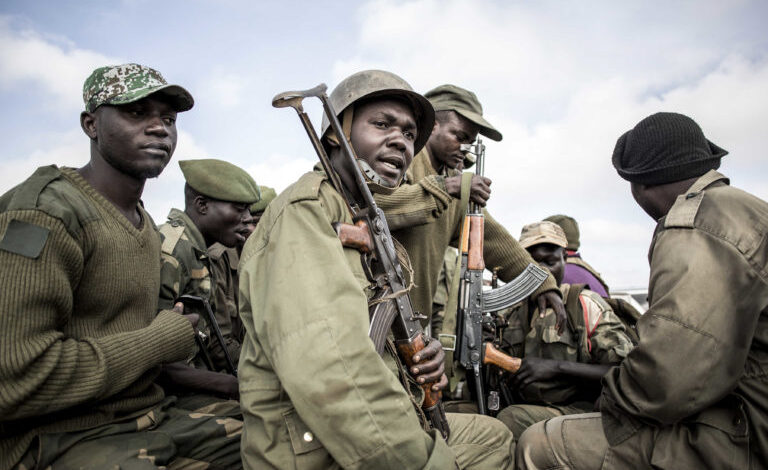Only 36% Of Congolese Believe State Of Siege Will Bring Peace To Troubled Provinces
The state of siege in the Ituri and North Kivu provinces of DR Congo have been in place for about a year, yet violence persists in those provinces.

A study has shown that only 36 per cent of the Democratic Republic of Congo population believe that the state of siege imposed on Ituri and North Kivu provinces would bring peace and the total eradication of armed groups in the eastern part of the country.
The state of siege was imposed on May 6, 2021, by President Felix Tshisekedi.
According to a study/survey carried out by the Office of Studies, Research and International Consulting (BERCI) in collaboration with the Study Group on Congo (GEC) of the University of New York and Ebuteli, its research partner in DR Congo, the positive belief in the state of siege stood at 53 per cent three months earlier in Oct. 2021.
The same study realised that the popularity of President Tshisekedi among Congolese had dropped from 54 per cent in March 2021 to 29 per cent in Dec. 2021.
In the province of North Kivu, which is the hardest hit by Allied Democratic Forces (ADF) exactions since 2014, “64 per cent of persons interrogated are hostile to the military presence of Ugandan forces in the country,” according to the report.
“The rejection is more pronounced of joint police operations between DR Congo and Rwanda announced by the signature of a memorandum on December 14, 2021, with 69 per cent of persons interrogated disapproving of it.”
“This disappointment by the population is also extending to almost all the institutions of the country, notably the government and the two chambers of parliament.”
“In effect, more than 65 per cent of those interviewed estimate that the control of government by national parliamentarians is not efficacious or non-existent. This tendency puts into question the capacity of the lower house to fully play its role of a counterforce to the executive,” Joshua Walker, Director of the GEC programme said.
A former opposition leader, Felix Tshisekedi succeeded President Joseph Kabila as DR Congo president in Jan. 2019 and his controversial security choices continue to be negatively perceived by the national community.
Since Nov. 30, 2021, the Ugandan army has been carrying out joint military operations with the Congolese army in fighting against armed groups, especially the ADF in North Kivu and Ituri provinces which are under a state of siege.
Support Our Journalism
There are millions of ordinary people affected by conflict in Africa whose stories are missing in the mainstream media. HumAngle is determined to tell those challenging and under-reported stories, hoping that the people impacted by these conflicts will find the safety and security they deserve.
To ensure that we continue to provide public service coverage, we have a small favour to ask you. We want you to be part of our journalistic endeavour by contributing a token to us.
Your donation will further promote a robust, free, and independent media.
Donate HereStay Closer To The Stories That Matter




